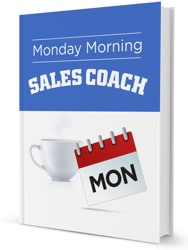What’s a “No” Worth?
Problem: One of the most common requests we get is for time management training. It seems there just aren’t enough hours in the day for most salespeople. Companies spend big bucks for smart phones and other electronic devices so salespeople can stay in touch and on customer relations management programs to make them more efficient. Training programs are conducted to help them evaluate areas where they are wasting time and provide s. Yet they still have time management issues.
Diagnosis: Unfortunately, the biggest time waster of all for salespeople is being overlooked. What is it? You guessed it…the ubiquitous “I need some time to think this over. Call me in a week or so.” Salespeople still have a problem getting their prospects to make a decision when they make a presentation and that stems from the fact that they just hate to hear “no.” So, they permit their prospects to drag them through the purgatory of alternating hope and despair, just because they don’t have the intestinal fortitude to hear a “no.”
Solution: Face the facts. You know that most “maybe’s” are just slow “no’s,” so why not get the “no” in the first place. Get rid of your old head trash. You don’t have to sell everybody. Ain’t gonna happen. You and I both know that.
Let’s look at the problems with “think it over’s” and “maybe’s.” It takes forever to get a “no,” which permits the prospect to steal your valuable time and employ his system at your expense. The slow “no” causes pipeline and forecasting problems (how much of your current forecast is wishful thinking?) It gives you a false sense of security, but when it becomes apparent that there will not be a deal, it’s devastating.
Here are two additional suggestions to eliminate “think it over’s.” First, make sure you discuss that at the end of the meeting you’d like to talk about the next step, assuming you’re both in agreement that the dialogue should continue, and that your prospect understands that he doesn’t have to string you along just because he assumes you’re not comfortable hearing “no.” Finally, your attitude on every sales call should be: “my prospect must convince me that there is a reason for my continued involvement in the sales process.” In other words, if you’re having any doubts that there’s a reason for the two of you to do business together, tell that to the prospect. Let him convince you that he really does have a problem and that you should stay involved.
So what’s a “no” worth? Just the most valuable thing you possess: that irreplaceable asset, your time. If you’re gonna get a “no,” it’s best to get it early.


